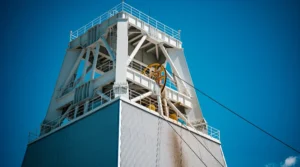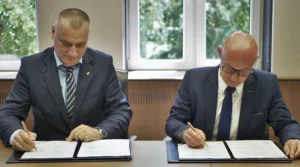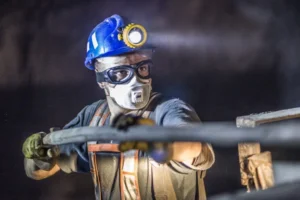What goes on in Poland on the 26th of February.
PGE is open to cooperation with Orlen on the NPP. The government is talking about a new special purpose company
There is a discussion in Poland about the construction of a nuclear power plant. The government declares its willingness to start work and counts on financial support from PKN Orlen. The Polish Energy Group, which holds the largest stake in the PGE EJ1 company responsible so far for the project, declares its readiness to cooperate with the new shareholder.
PGE spokesman Maciej Szczepaniuk quoted by Reuters confirms that his company is open to the entry of a new shareholder. – The strategic assumption of the nuclear project was and is openness to co-operation, both in the context of operational and capital involvement – he confirms.
He admitted that if PGE will change the scale of involvement in the company, „it will inform the market in accordance with the relevant regulations”. Reuters recalls that KGHM and Tauron, holding shares in PGE EJ1, assessed that they would not sell shares in the company. Enea refused to comment. However, in previous statements, government representatives mentioned the necessity of setting up a new company instead of PGE EJ1.
The Nord Stream 2 race is under way. The decision in March?
Nord Stream 2 will start searching for additional financing within a few months, which may take a year. The construction of the gas pipeline is planned for the summer of 2018. In Europe, regulatory work is underway, which may postpone the project if it is in force before the construction starts.
During the IP Week in London, the financial director of Nord Stream 2, Paul Corcoran, informed the conference participants that the project to build a gas pipeline with the same name will start seeking additional financing „within a few months”. – We are starting the process in the next few months and it may take up to a year – he admitted.
The lending project has financial support from lenders: Engie, Shell, OMV, Uniper and Wintershall, who have already donated funding for the project. 70 percent of the value of the gas pipeline is to be financed from the outside. The project assumes the construction of a gas pipeline with a capacity of 55 billion cubic meters annually from Russia to Germany. Supporters count on cheap gas. Critics are afraid of consolidating the position of Russian Gazprom, weakening Ukraine’s position, undermining alternatives like LNG terminals and political and environmental threats.
Corcorac admitted that Germany still did not agree to run the gas pipeline through their exclusive economic zone. – We have received consent for the territorial waters of Germany. We are counting on the agreement on the exclusive economic zone in the coming weeks – he said. This will be necessary to start construction this summer. Meanwhile, work on the revision of the gas directive, that is the regulation regarding the operation of gas pipelines in the European Union is underway. The change will also cover the import gas pipelines from third countries, such as Nord Stream 2, which have so far acted in the legal vacuum.








